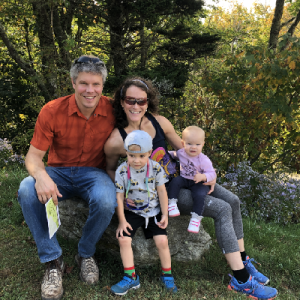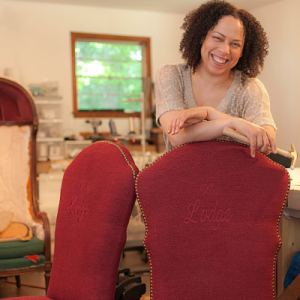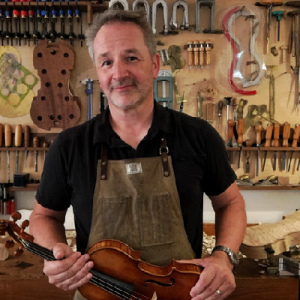This monthly blog from The Maker City features a look at some of the Knoxville area’s outstanding makers – artists, crafters and custom builders. This month’s blog introduces three area makers who excel at custom manufacturing.
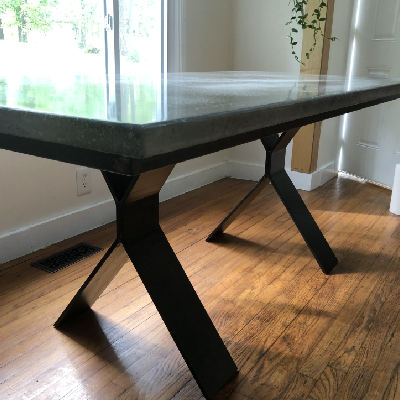 |
 |
Bentley Brackett, Elemental Design Company
How did you get started as a designer/maker?
I had always been interested in working with steel, and with a number of personal projects, steel was the only solution. With the help of Knoxville’s wonderful Maker community, I transitioned from making a couple of forged hooks for a residential client to building out entirely new construction for a restaurant in a short period of time.
What do you make, and how?
The majority of our work is custom one-off pieces for both residential and commercial clients, ranging from a unique piece of furniture in the entrance of a home to custom storage solutions for a restaurant. We work with steel, wood and high-end concrete, which allow us to be creative and meet the clients’ needs with materials that are engineered to last a lifetime.
Where are your products offered for sale?
You can reach us through our website.
Bentley Brackett graduated from UT with a degree in advertising and business. When he realized flying a desk was not for him, he looked to the trades and found his niche. Bentley enjoys mountain biking in Knoxville’s Urban Wilderness and the wonderful trails that surround Knoxville, and camping with his son, daughter, and wife Jessica.
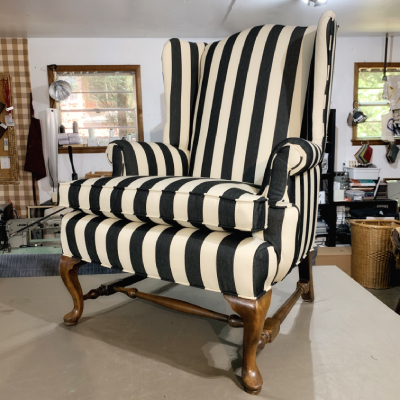 |
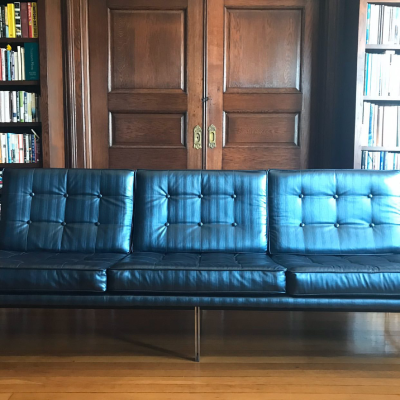 |
Rachel Fletcher, Knox Upholstery
How did you get started as an upholsterer?
I learned the basics as a props assistant at the University of Tennessee’s Clarence Brown Theatre (CBT.) I began to upholster all the furniture for the shows, learning on both contemporary and antique frames and working with a wide variety of suitable fabrics, not-so-suitable fabrics and some interesting applications that would be otherwise looked down upon in the professional upholstery world!
What do you make, and how?
My motto is, “It’s your furniture, but better!” Essentially, someone will bring me their chair/sofa and I’ll tear it back to the frame, removing all of the old upholstery and, if needed, the padding and springs. In that case, I’ll hand-tie the new springs and replace all of the padding, then add fabric to the body of the frame, create the cushions and sew their casings.
It’s truly the small nuances that differentiate one shop from another. At Knox Upholstery I’m going to notice the slight grain in the fabric and make sure it’s running straight. Decorative nails are going to run smoothly in one straight line and patterns are going to match whether you see them or not. I pride myself on the small details and want each one to be perfect.
I like to work with the client on their fabric selection, and if they want to use the back side of the fabric and run it on the diagonal or upside down, then I will do it, after explaining why this may diminish the material’s life expectancy, etc. In the end, this is the client’s piece and what they want is what they are going to get. And that makes us both very happy.
Where are your products offered for sale?
I work only with private clients. I rarely have a piece that’s for sale, but if I do, I am selling the frame along with my services. People can find my work and the inner workings of Knox Upholstery on Instagram.
Born in St. Louis, Mo., Rachel Fletcher earned her bachelor’s degree in communications from Millikin University in Illinois. After working in marketing and advertising she moved to Knoxville in the early 2000s and reclaimed her theatrical roots, taking a position at the CBT. Fletcher is the Founder of Knox Upholstery and president of the National Upholstery Association. She lives in the Lakemoor Hills neighborhood with her two dogs, Benson and Kassie, and her cat, Tig -- the true rulers of her world.
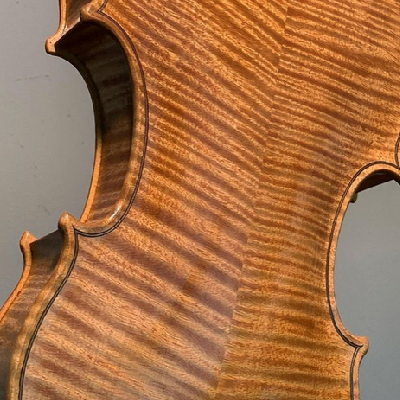 |
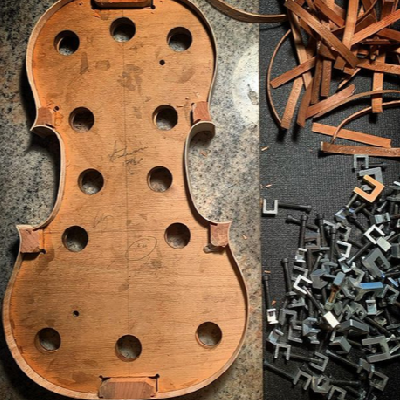 |
Kelvin Scott, Kelvin Scott Violins
How did you get started as a violin maker, or luthier?
While working on my PhD. in English at the University of Michigan, I read an old Victorian treatise on violin making. After a year or two of dabbling in luthierie as an amateur, I took the plunge, upended the life I was at that time pursuing, and enrolled in the Chicago School of Violin Making in 1997.
I was then offered a dream come true: apprenticing under Gregg Alf, one of the best violin makers in the U.S., at Alf Studios in Ann Arbor, Michigan. He generously taught the myriad aspects of both the craft and art of violin making, openly sharing his extensive knowledge of wood selection, woodworking, and varnish.
Violin making is a craft that is ultimately passed from one maker to another. You inherit a lot of process, style, and aesthetic, as well as a place in the lineage.
What do you make and how?
I make violins, violas, and cellos -- about nine to eleven instruments a year -- for musicians of all sorts: classical, traditional, jazz, you name it. I start with wood that I purchase in Italy, Bosnia, Romania, and other European countries. The wood sits in my attic for at least a decade before it is used.
Most of my instruments take about a month to make, cellos longer. I usually have multiple instruments in the works at various stages of production. If the great seventeenth-century master Antonio Stradivari was transported to my workshop here in Knoxville, there is much in the way of tools, materials and methods that he would recognize as unchanged since his time!
Where are your products offered for sale?
Most of my instruments are made on commission for particular clients. I also have long-standing relationships with excellent dealers in Chicago, Boston, and Manhattan. You can find me at my website.
Born in 1969 in Oxford, England, award-winning luthier Kelvin Scott first became interested in violins began when his father inherited an old French instrument from an aunt. He began playing the violin at the age of six. Pursuing an academic career in English and education, He earned a bachelor’s degree at Michigan State University, a master’s degree at Harvard, and was pursuing a doctoral degree before deciding on an entirely different career path. Since 1999, Scott has been devoted exclusively to making new violins, violas, and cellos.In 2000 he established a small workshop in his home in Chicago. In spring of 2003, he relocated to Knoxville, eventually purchasing a separate building to house his studio.
Scott was awarded a gold medal at the 2004 Violin Society of America (VSA) competition for a 16 1/4″ Brescian viola, followed by a string of subsequent medals for violin, viola, cello, and quartet. In 2012 he was granted the rare distinction of “hor concours” -- “above the competition” -- by the VSA. He lives in Knoxville with his wife Rachelle, their two children Ian and Phoebe, and “sundry dogs and cats.”

